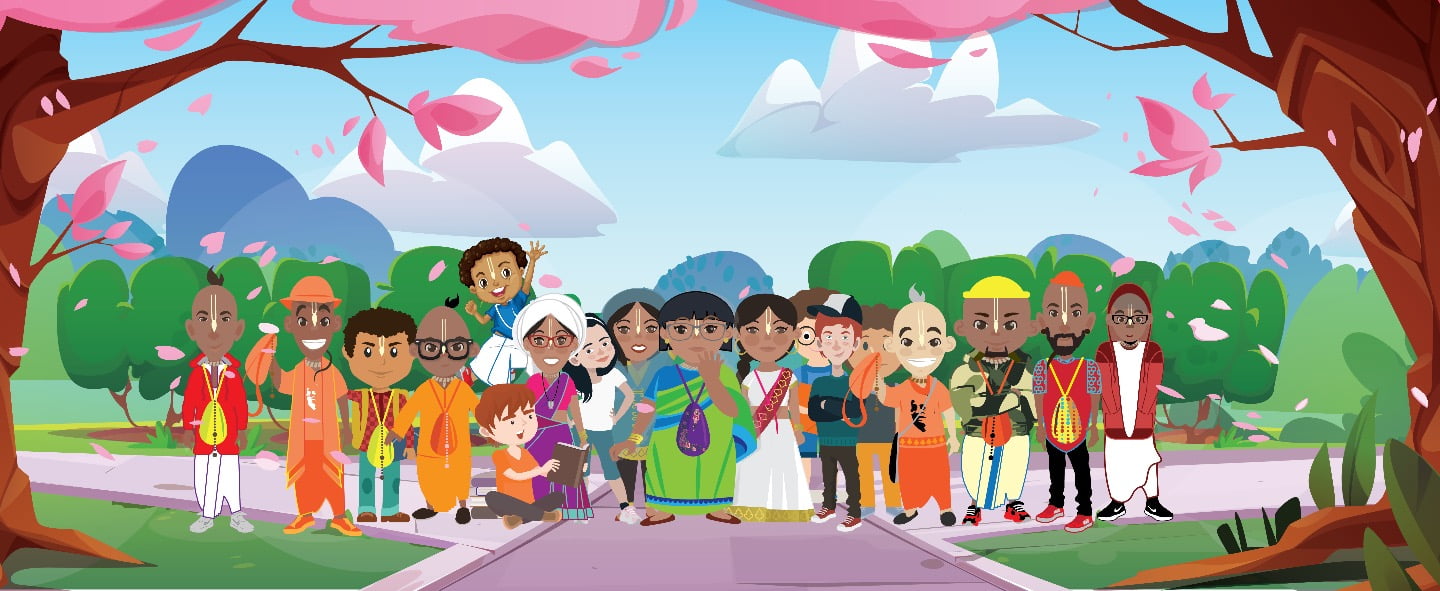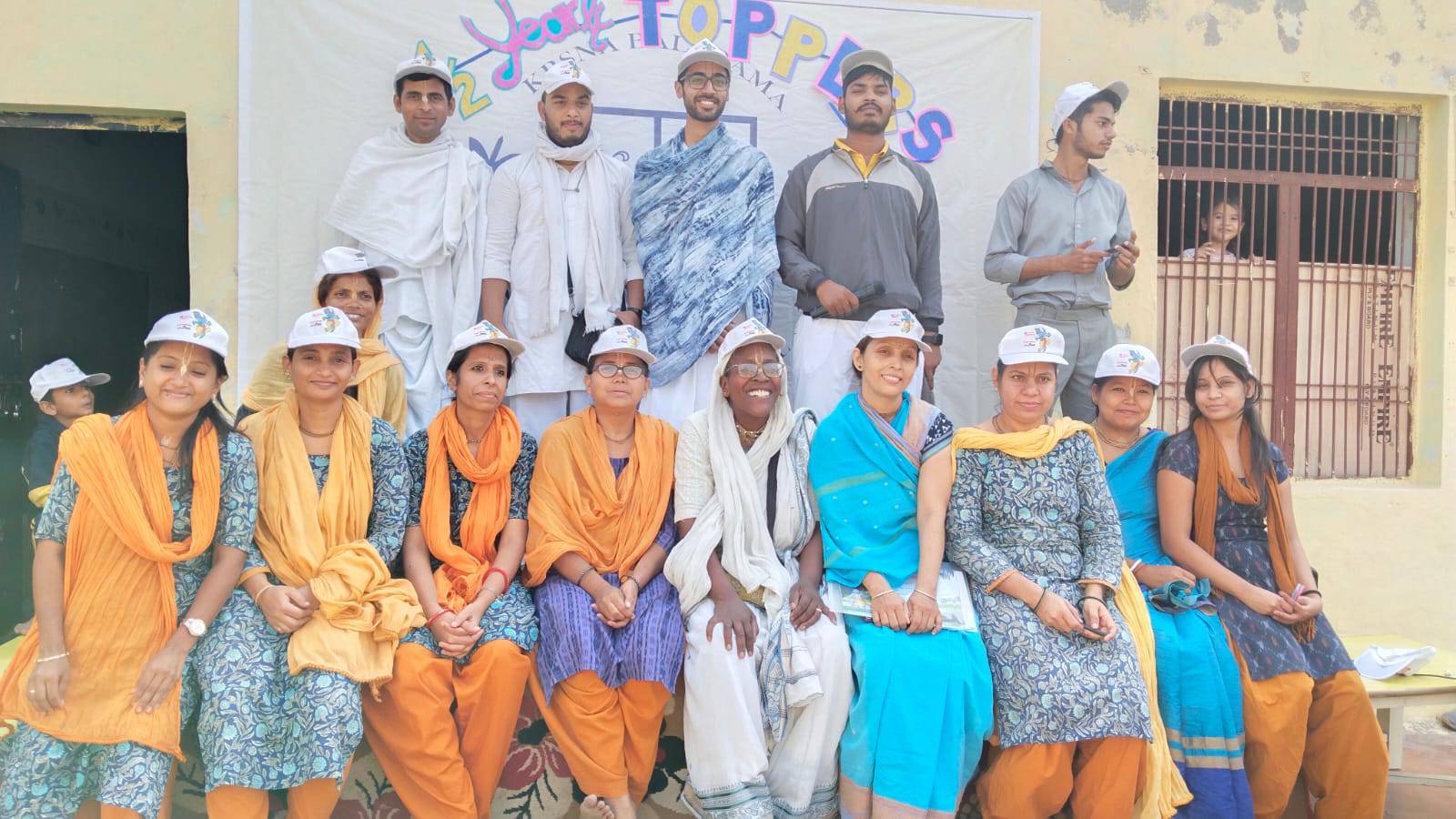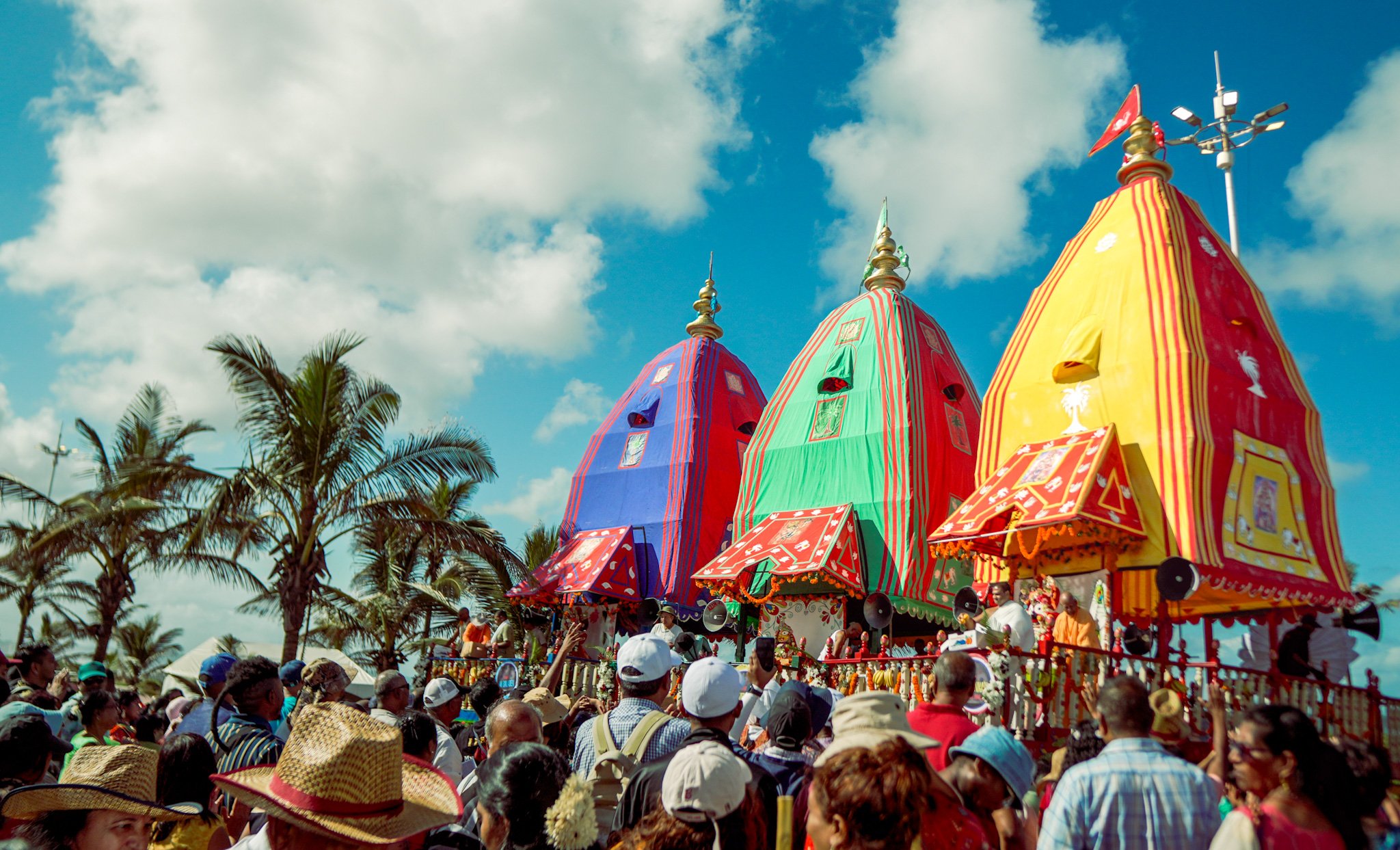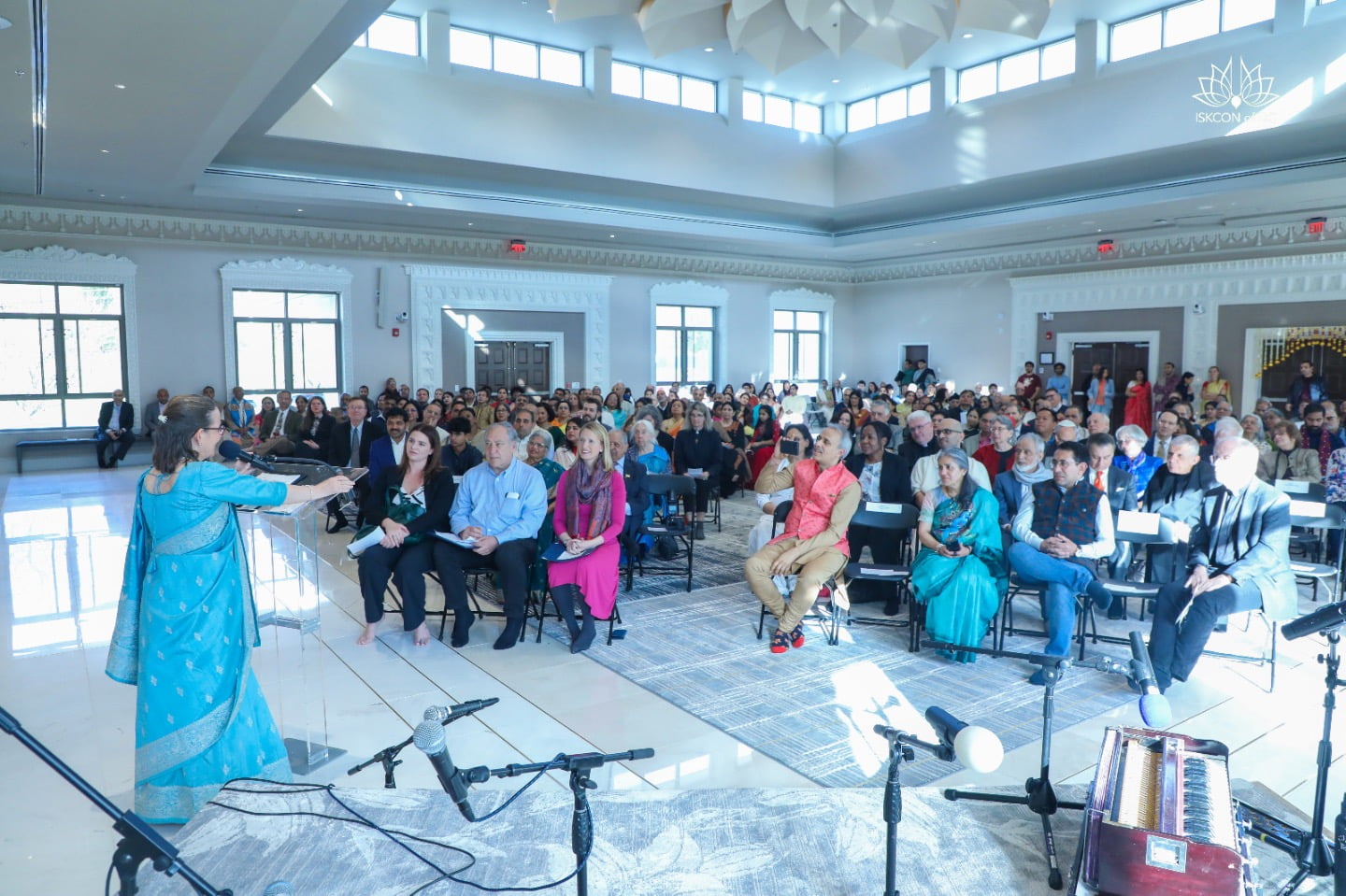ISKCON Leicester Devotees Participate in Hindu Muslim Friendship Meals
By Madhava Smullen | Feb 14, 2020
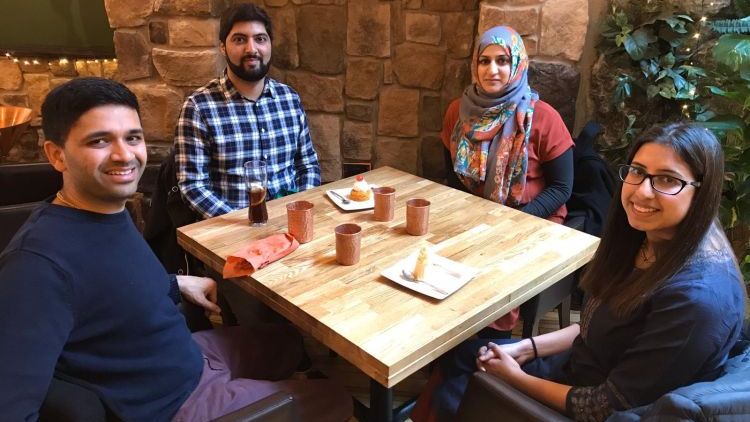
In the U.K., devotees from ISKCON Leicester’s congregation joined a total of nearly twenty families for a groundbreaking scheme called ‘Come Dine Together,’ designed to build friendships and understanding between Hindus and Muslims.
ISKCON Leicester has a close working relationship with St Philip’s Centre, the charity for interfaith understanding that launched the scheme. During a discussion with the Centre’s Deputy Director Riaz Ravat, ISKCON Leicester temple president Pradyumna Das (Pradip Gajjar) raised the concern that Hindu Muslim tensions had been on the rise in the city, predicated by the Kashmir conflict between India and Pakistan; as well as the December general election in the UK, when both communities took political sides.
“So we talked about what we can do to bring Hindu and Muslim people together,” Pradyumna says. “Riaz, a practicing Muslim, told me he was already working on an initiative to bring families together. I was immediately into the idea; of meeting families of different faiths, having conversations, building relationships, and appreciating that what we have in common is faith in God.”
Starting on Saturday February 1st, about sixty Muslims and Hindus – nearly twenty families – who were meeting for the first time were paired together and shared a meal as part of ‘Come Dine Together.’
The initiative was modelled on the Channel 4 programme ‘Come Dine with Me’ which sees people who have never met before eating together and getting to know one another. Come Dine Together also coincided with the UN World Interfaith Harmony Week.
Muslim and Hindu families were paired together based on the ages of their children and other commonalities, and either welcomed each other into their homes or met at a mutually convenient restaurant.
Pradyumna Das and his wife Nimai Dasi (Nima Suchak), who serves as the communications manager for ISKCON Leicester, shared a meal with Imran Sulaman – an Imam – and his wife Shaimaa.
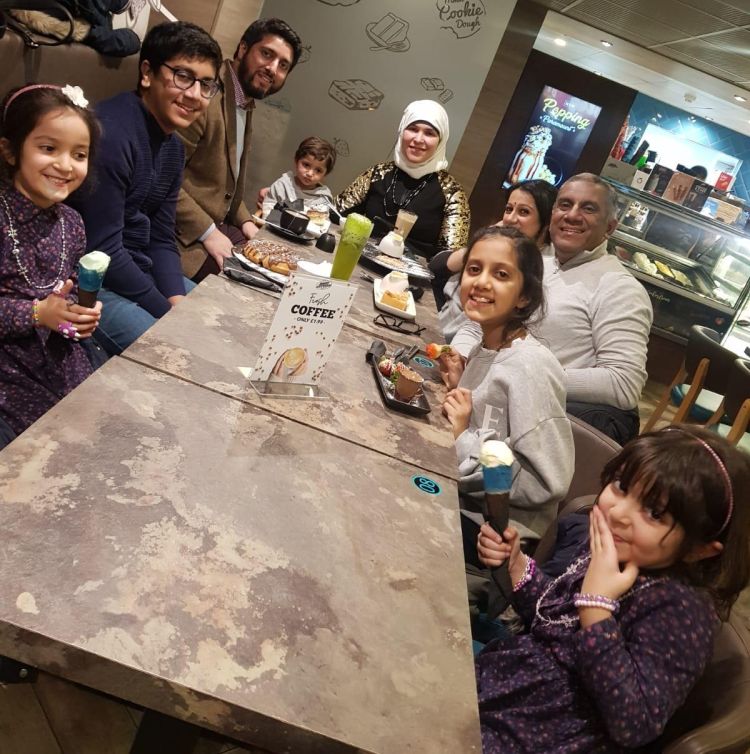
ISKCON Leicester President Pradyumna Das (Pradip Gajjar) and his wife Nimai Dasi (Nima Suchak) share a dessert with Imran and Shaimaa Sulaman
Imran runs his own Madrasa, or Islamic school, where his wife is the lead teacher. The two aim to share Islam in an open way, to a diverse group of Muslims, and to go back to the original teachings of the Qur’an.
“One of the things he shared that really resonated with me was a Hadith, a saying of Prophet Muhammad to ‘be merciful to everything on earth so that the one in the heavens is merciful to you,’” says Pradyumna. “A similar message is carried in the Qur’an, where God is referred to mainly as ‘All-merciful.’”
“In response, I spoke about the three principles of Lord Chaitanya, ‘jive doya name ruci Vaisnava-seva.’ Jiva doya means to be compassionate to all living beings; nama ruci, to develop a taste for the holy name of Krishna; and Vaishnava seva, to serve the devotees.”
“Imran said that he views all people in this world as part of God’s creation, and his duty as being compassionate upon them. And I talked about how Lord Chaitanya’s compassion was to share the message that love of Godhead sits in the heart of every living being. And that whatever name of God they call, we invite them to call that name, and be reconnected to their loving relationship with God.”
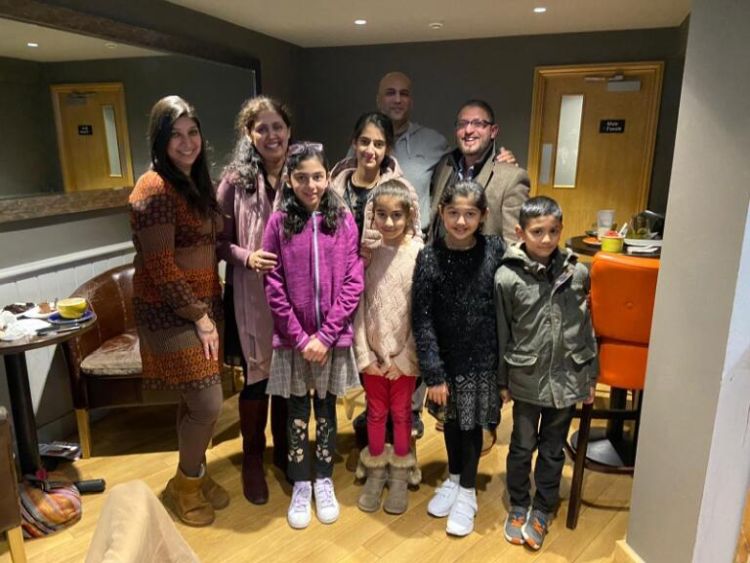
Saci Kumar and Amrita Keli with Ashar and Amna Saeed and family
The families also discussed how God’s name is equal to God Himself, as well as diversity and openness in faith.
Imran’s wife Shaimaa talked about how she shares multifaith stories – such as the meaning of Diwali – with her daughters, and teaches them to respect other faiths.
During this discussion, Pradyumna and Nimai’s son, 13, and daughter, 11, also bonded and played with Imran and Shaimaa’s three children. Pradyumna said the two families experienced a great sense of ‘alignment.’
“Being a Hare Krishna or a Muslim, at the end of the day, was almost incidental,” he says. “It was a platform for conversation, but it was no different to meeting anyone for the first time and creating a friendship. And we wanted to continue that friendship beyond the initiative.”
The other devotee families who participated, Pradyumna adds, also felt the same desire to maintain the connections they had made.
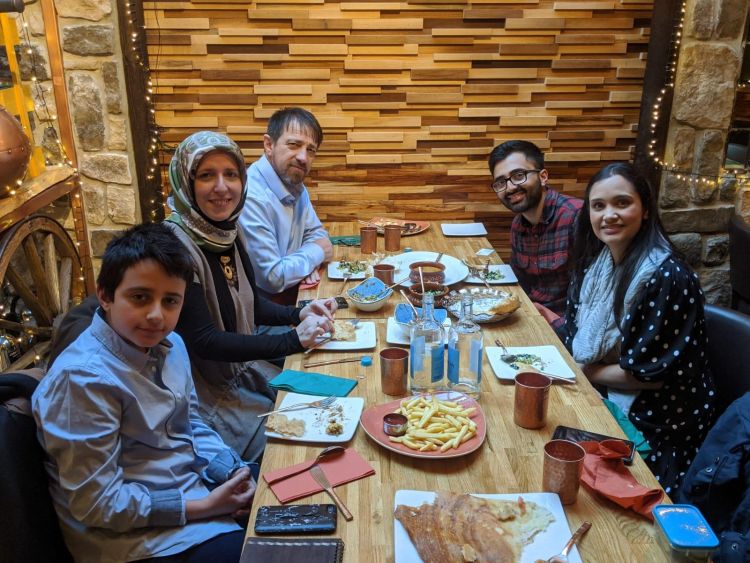
Amit and Maya Shah share a meal with Kadirbhai, Ashegoul and Omer Demirlenk
All the families who took part plan to come together before the end of March for a ‘Chai and Chat’ event to share their experiences with the wider network.
Nimai Dasi commented, “It has always been important for me to have friends of all faiths and backgrounds. I’m very grateful to the St Philip’s Centre for this initiative to bring us together as families and for us all to realize that we are stronger and better together.”
Nafeesa Katib, a Muslim who welcomed a Hindu family into her home said, “The reason for our family to be part of this great idea of Hindu-Muslim friendship meals is to break down barriers. We are all the same and the only difference is that we have different religions and cultures which make us unique.”
Pradyumna concluded, “When people are being influenced politically to hate those of another political leaning, I think it’s important that people of faith take leadership and unite, rather than divide. It’s an opportunity to share that faith in God is very special – it defines us as human beings. And when people dedicate their lives to serving God, whatever they call Him, and whatever their cultural or ethnic background, that should be celebrated.”
He said that initiatives like ‘Come Dine Together’ set an example that people of faith should rise above the political sphere, which will espouse one view today, and a different one tomorrow.







